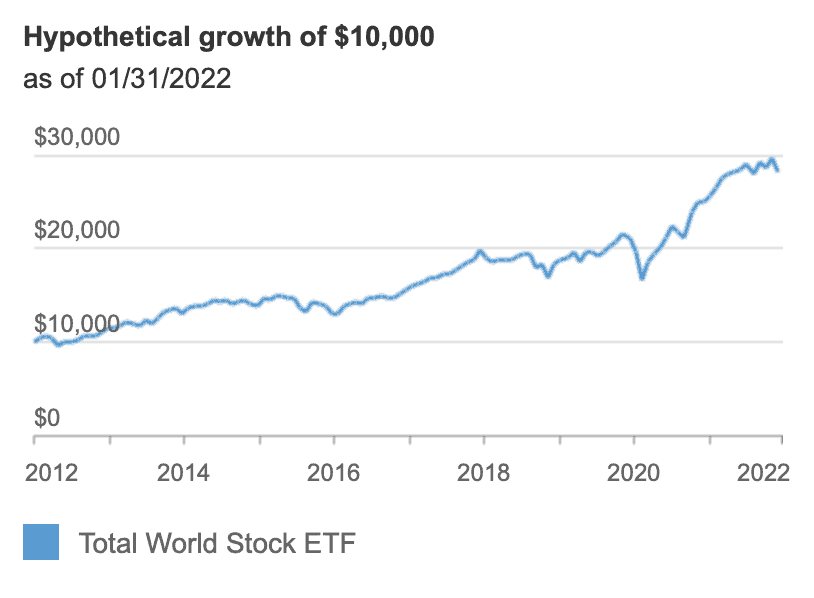Work shapes a third of our lives. If you’re unsure about how to genuinely feel […]
Charlie Munger is the business partner of legendary investor Warren Buffett, and he’s one of the greatest thinkers of our century.
In a lecture given to students in 1994, Charlie Munger revealed the secret behind the way he thinks: “You’ve got to have models in your head. And you’ve got to array your experience—both vicarious and direct—onto a latticework of models. You may have noticed students who just try to remember and pound back what is remembered. Well, they fail in school and in life. You’ve got to hang experience on a latticework of models in your head.”
Munger talks about mental models. He doesn’t mean models in the sense of architectural models or simulations, however—scaled-down depictions of reality—but rather mental tools, mental tactics, mental strategies and attitudes.
If we don’t have a solid mental toolkit to fall back on, we might fail in life
1. The Swiss Army Knife Approach
To be a successful thinker in a complex world, you need to gain wisdom and learn multiple important ideas. Otherwise, you will have to pay for your ignorance. The man with a Swiss Army knife realizes that different problems require different tools, and he is equipped and ready for applying the best tool for the given situation.
You need multiple models to cope with a complex world
2. Make Friends With the Eminent Dead
You are not restricted to living people when picking mentors. Although some of the very best people to learn from, are dead, they still live with us in their written words. You should always strive to master the best things that other people already have figured out.
Don’t try to dream it up yourself, no one is that smart.
Be careful what you consume and who you choose to learn from.
Some of the very best ideas come from those that are no longer with us
3. Invert, Always Invert
3 things in life that cause misery: doing drugs, being envious and showing resentment.
3 things is life that makes you a failure: being unreliable, learning everything yourself, giving up early and never inverting.
An approach to not screw up is avoiding the downside, and the rest will take care of itself. Focus on what to avoid.
Problems are sometimes easier to solve if you turn them upside-down
There is long-term advantage when you try to be consistently not stupid, instead of trying to be very intelligent.
4. Compounding
The value of an investment portfolio tends to grow exponentially. You can ruin the benefits by trading and incurring management, transaction fees, and unnecessary taxes.
Money in a stock market portfolio tend to grow exponentially if you don’t mess things up
5. Crush Your Cherished Beliefs
There are many psychological tendencies which cause us to hold onto old ideas that no longer serve us. But if you want to become wise, you must learn the ability to unlearn.
You need to recognise reality and add or replace things/ people/ objects/ ideas ruthlessly, so that you can become more effective in the future. Don’t be sad just because you recognize that you may have been using an old and rusty tool for a while. Instead, be happy that you’ve found a new one!
Charles Darwin was famous for saying that you must strive to crush your most cherished beliefs.
If you want to become wise you must learn the ability to unlearn
6. Opportunity Costs
You have limited resources. The actions you take today (money, time etc) means you will have to forgo the next best alternative. Saying yes to something means that you are indirectly saying no to something else.
There are choices to be made. It is okay to say no most of the time. There's always a choice to make but not all choices are not created equally. Pick carefully.
Make a wise choice and decide what to do with your precious time and money
7. Parimutuel Betting
You need to consider both the quality of the underlying company and the price that you are paying. The trick is to get more quality than you pay for in price.
You are looking for a mispriced gamble
8. Survival of the Fittest
It’s easier to achieve success if you specialize. So seek out a niche where there is little competition.
In nature and in business, specialization is key. In an ecosystem, you can consider occupying a niche where few would like to compete with you.
To succeed, you’d have to be exceptional at what you are doing.
9. Margin of Safety
Calculating the true value of an investment typically involves a lot of estimations and assumptions. So you should only make an investment when you think that you can get it at a fair discount of its true value ( intrinsic value).
If you use a margin of safety in your investing, even if things go wrong, you will still be able to come out on top.
You simply want to hedge yourself against the possibility that you’ve been too optimistic in a few of those estimates.
10. The Superpower of Incentives
Think about what the underlying incentives in a system are, and realize that people are often looking to game them as best as they can to serve their own interests.
Always consider the incentives involved when you are dealing with people.
11. Independent Thinking
To avoid getting hurt by people with the wrong incentives, you must learn to use independent thinking.
In investing, independent thinking is often called contrarianism and Benjamin Graham said it best: “The stock investor is neither right or wrong because others agreed or disagreed with him. He is right because his facts and analysis are right.
Don't follow the crowd. Question the logic behind the actions.
12. Simplicity
In investing, the easy decisions can be just as profitable as the more complex ones are. You do not need to invest in advanced derivative contracts or companies operating at the cutting edge technology to be a successful investor.
You don't have to stay active all the time to be a successful investor. You only have to swing when you feel very confident.
You can cut through the complexities of the world by always focusing on the most fundamental ideas, but be certain that you get these right.
Charlie Munger has a rule for life in general:
1. Take a simple, basic idea
2. Take it very seriously
Invert, always invert and understand what is important to avoid. But nothing is more important than taking these simple and basic ideas seriously.
You can let everyone else get lost in the maze of complexity, while you cut through it with simplicity.
13. Technology as a Problem
Technology is a problem for the investor because it makes predictions more difficult to make, and predictions are an inevitable part of stock market investing.
Industries that are undergoing a lot of change are, by their nature, more difficult to predict. This means that technology is more of a problem than an opportunity for the long-term investor.
The more the technological change, the higher the degree of uncertainty of such predictions.
14. The World’s Most Intelligent Question
We all have a built-in curiosity in us.
if you want to become wise, don’t stop asking “why” questions. Within statistics, people sometimes throw out the so-called outliers, the results that you didn’t expect to get and that divert a lot from the rest of the data.
What you want to do if you want to understand reality, is probably the exact opposite of that. Study the outliers and ask “why”.
If you want to get smart, the question you've got to keep asking is: Why?
Try to figure out why things are happening or why they are not happening, because over time, such information will help you grasp reality better.
15. Circle of Competence
Limit your investment decisions to those areas that you understand very well. ask yourself the following question, 10 years from now, the industry that i want to invest in, will look like and how will the firm perform compared to competitors?
No one is surprised that if you practice swimming, golf, football, horse riding, and powerlifting simultaneously. you are not going to be as successful within one of the sports as you could otherwise have been.
16. Filters
There are a lot of thing that you can invest your time and money in them. But you do not have time to consider all of them.
By using filters, you can quickly narrow down thousands of potential investment candidates to a short-list of better than average opportunities. So the returns should be better than the average
Inversion at work: You are trying to find what you want to invest in by first excluding what you do not want to invest in.
17. The Fat-Pitch Strategy
Patience is key in investing. you don’t get rich by going after mediocre opportunities. If you wait for the fat-pitch, you’ll need some dry power to spend when it actually does show up.
Warren Buffett is famous for saying that he could improve most peoples’ lifetime investing results, by giving them a ticket with twenty punches in it, representing all the investments that they are allowed to make over that lifetime. If you’re only allowed to pick 20 stocks ever, you’ll think very carefully about each and every one of your decisions.
Life all comes down to a few moments. This is one of them. Of course, the art of sitting on your ass and waiting for the perfect investment opportunities
This sounds very easy in theory, but it is a lot more difficult in practice. Especially when everyone around you, or at least those who talk about it on social media, seem to become wealthy overnight by investing in Tesla or cryptos. Patience is key here.
If one adheres to this strategy, there will be very few mistakes in one’s investment career.
Remember, the first rule of investing club is - you do not lose money
18. Because You are Worth it
The best way to get what you want from life is to deserve what you want. It is because you cannot twist the fabric of reality without having it snap back.
Cutting corners is not the way to get what you want from life.
19. Probability Mindset
You must fold when the odds are stacked against you and be willing to bet big when the odds are clearly in your favor.
Probability trees and conditional probabilities are terribly important to understand, it you want to be a rational decision-maker, both in the investing and otherwise.
Charlie Munger: not knowing about probabilities is like being a one-legged man in an ass-kicking contest. you are giving away a huge advantage to everyone else.
20. The Bell Curve
The normal distribution tells us that data will hover around the average, or mean, and be increasingly unprobeable the further away from the mean that we get.
Charlie Munger says that you do need to understand that many events and aspects in life are distributed this way, but you do not need to be able to do the math or derive the formulas yourself,
21. Physics Envy
Humans crave simplicity and elegancy. in Physics, we have beautiful equations such as Newton’s second law and Einstein’s mass-energy equivalence. These equations are exceptional findings, and they are really elegant.
22. Vaguely Right Beats Precisely Wrong
Don’t overweigh the stuff that is simple to quantify and apply statistical techniques to. They may not be the most important variable to consider, just because you can easily attach numbers to them.
This is one of the reasons why Warren Buffett allegedly never has used a computer or calculator for making his investment decisions. even if something is difficult to measure and quantify, it should probably be included in your decision-making process, if you gauge that it’s a determining variable for that decision.
23. Secondary and Tertiary Effects
It’s been said that a butterfly can flap its wings in the Amazon jungle and subsequently, a storm ravages half of Europe. In complex systems, one action will not just have a single effect; an action will oftentimes have unexpected consequences.
Munger says that it’s very common in corporate life to forgot about how competitors will react in response to a certain move. for example, you are predicting huge cost savings by investing in new machinery or a new production plant.
The return on capital in such a project may look amazing, but often only when considering your business decision in a vacuum. if competitors do something similar, prices will fall in the industry as a whole, and the returns that were projected will disappear.
24. The Cancer Surgery Formula
When doing cancer surgery, you are trying to remove what is dangerous and bad to preserve what is still healthy and vibrant underneath. a business with something glorious underneath, disguised by terrible numbers that cause cutoff points in other people’s mind, is ideal for us, if we can figure it out. some investments have a great core, but seem terrible on a first glance.
25. Scale
Ask yourself, what will the industry of the company look like 10 years from now? To remain relevant in an industry, a company that you invest in must possess a competitive advantage.
Meaning that, it must do something which allows it to beat its competitors. scale is a very common way for a large company to gain a competitive advantage, but trees do not grow to the sky.
26. Limits
Over the long term, it’s hard for a stock to earn a much better return than the business which underlies it earns. If the business earns six percent on capital over forty years and you hold it for that forty years, you’re not going to make much different than a six percent return – even if you originally buy it at a huge discount.
Limits can be very useful to consider when comparing, measuring and weighing stuff in the real world. you’ll get an upper bound to relate to when making your calculations
27. Non-linearity
1 amount of input doesn’t always result in 1 amount of output. The classical example of non-linearity from economics is that of marginal utility. Eating two apples is not twice as satisfactory as eating just one, there’s often diminishing returns. it’s kind of silly to expect that every business everywhere in the world would have smooth and linear earnings.
28. Manage Expectations
Joy in life is arguably a result of both expectations and results. the simplest way to happiness is to reduce expectations, rather that trying to achieve the near-impossible.
29. The Iron Prescription
If you want to be successful in life, you mustn’t feel sorry for yourself or feel that the world is mistreating you. Charlie Munger is a great example of having a strong character in this regard. even when Munger’s first-born son slowly passed away in incurable Leukaemia, Munger said that “you should never, when facing some unbelievable tragedy, let one tragedy increase to two or three through your failure of will.”
30. The 5 Ws
When you are trying to get someone else to do something for you, always address the 5Ws – who, what, where, when and why. Why is probably the most important one here.
Thank you for reading! Please like my Facebook page to get the latest updates.
Please click here for Referral deals.







